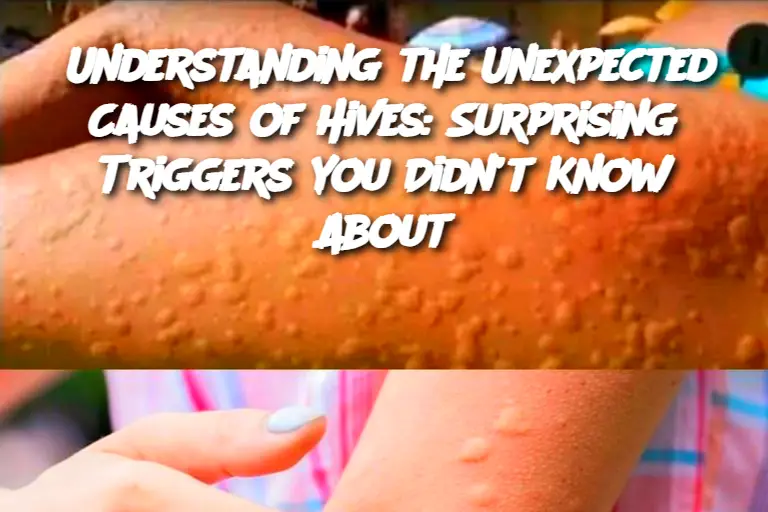ADVERTISEMENT
While the triggers for hives are many and varied, the treatment for hives often remains similar across cases. However, there are different approaches depending on the severity:
Mild Hives: For mild cases, lifestyle changes like reducing stress or avoiding specific foods may be enough to prevent outbreaks.
Severe Hives: If hives are persistent or cause significant discomfort, stronger medications or prescribed antihistamines might be needed.
Chronic Urticaria: If hives occur for six weeks or more, it’s considered chronic urticaria, which requires more specialized treatment and a doctor's care.
FAQs:
Can hives be caused by stress? Yes, stress can lead to hives as it causes the body to release histamines, which can trigger an allergic-like reaction on the skin.
Are there any foods that commonly cause hives? Yes, foods like shellfish, nuts, eggs, and certain fruits can trigger allergic reactions in some individuals, causing hives.
Can hives appear for no reason? Sometimes, hives appear without an obvious cause, especially in cases of chronic urticaria. If hives persist, it’s a good idea to consult a doctor to rule out underlying conditions.
Are hives contagious? No, hives are not contagious. They are a reaction of the body’s immune system and cannot be spread from person to person.
How long do hives last? Hives typically last anywhere from a few hours to a few days. However, chronic cases can last for weeks or even longer.
In conclusion, while hives can appear unexpectedly, knowing the lesser-known triggers can help you manage and prevent them more effectively. If you're experiencing frequent hives, it's always best to consult with a healthcare professional for personalized treatment.
ADVERTISEMENT
